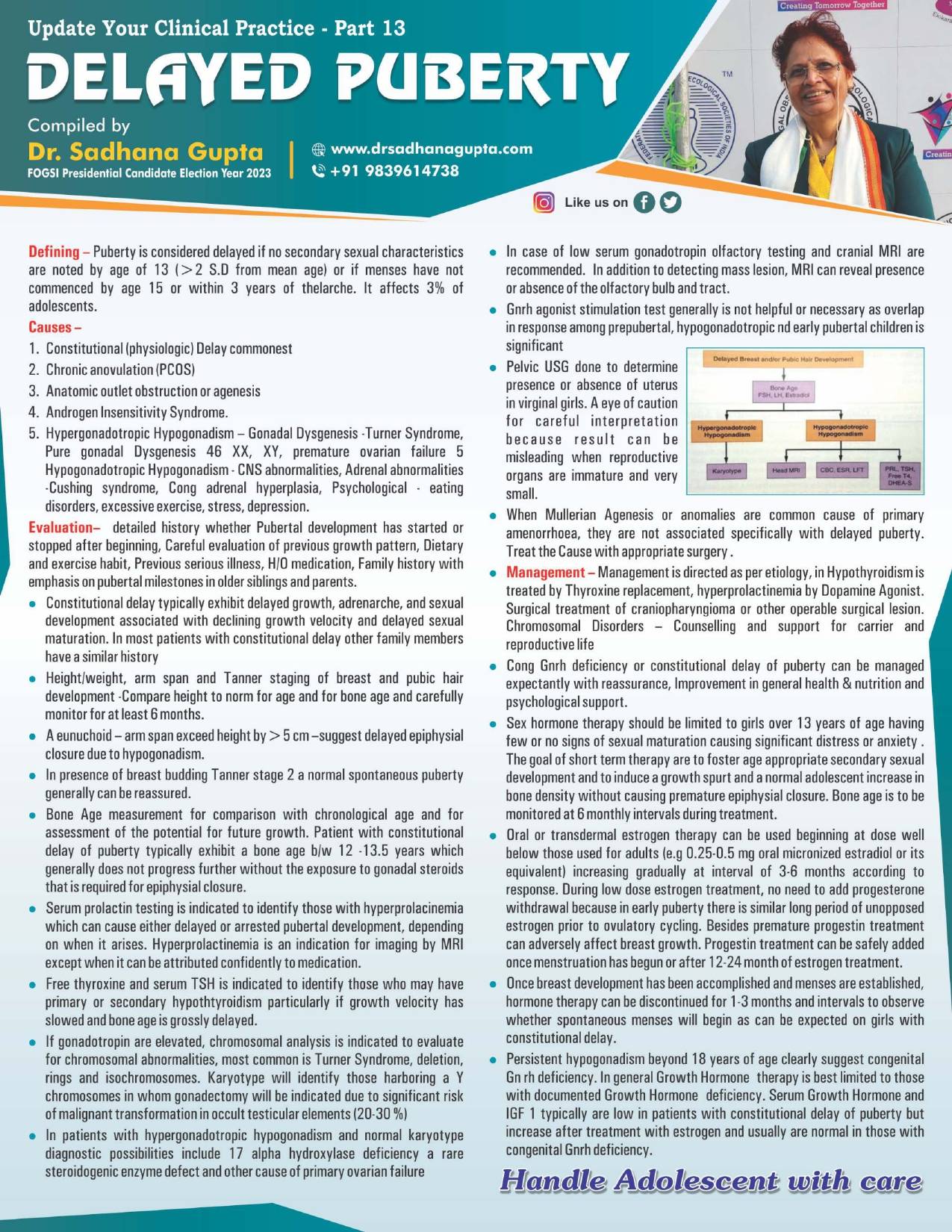Table of Contents
I. Introduction
Puberty is a significant milestone in a person’s life, marking the transition from childhood to adulthood. However, some individuals experience a delay in the onset of puberty, which can be a cause for concern for both adolescents and their parents. In this blog post, we will explore the concept of delayed puberty, its potential causes, common symptoms, and available treatment options.
Section 1: What is Delayed Puberty?
Delayed puberty refers to a condition where the onset of physical and sexual development is significantly later than the average age range considered normal. In girls, delayed puberty is typically diagnosed when there is no breast development by the age of 13, while in boys, it is diagnosed when there are no testicular enlargement or other signs of puberty by the age of 14.
Section 2: Causes of Delayed Puberty:
1. Constitutional Delay: The most common cause of delayed puberty is simply a variation of normal growth. In these cases, individuals tend to have a family history of delayed puberty, and they eventually catch up with their peers in terms of physical and sexual development.
2. Chronic Illness: Certain chronic medical conditions such as diabetes, kidney disease, or malnutrition can affect the timing of puberty.
3. Hormonal Imbalances: Hormonal disorders, such as hypothyroidism or pituitary gland abnormalities, can disrupt the normal hormonal signals required for puberty initiation.
4. Genetic Factors: Some genetic conditions, such as Kallmann syndrome or Turner syndrome, can result in delayed puberty due to abnormal development of reproductive organs or hormone production.
5. Emotional and Psychological Factors: Extreme stress, emotional trauma, or eating disorders may contribute to delayed puberty.
2. Chronic Illness: Certain chronic medical conditions such as diabetes, kidney disease, or malnutrition can affect the timing of puberty.
3. Hormonal Imbalances: Hormonal disorders, such as hypothyroidism or pituitary gland abnormalities, can disrupt the normal hormonal signals required for puberty initiation.
4. Genetic Factors: Some genetic conditions, such as Kallmann syndrome or Turner syndrome, can result in delayed puberty due to abnormal development of reproductive organs or hormone production.
5. Emotional and Psychological Factors: Extreme stress, emotional trauma, or eating disorders may contribute to delayed puberty.
Section 3: Symptoms of Delayed Puberty:
Delayed puberty is primarily characterized by a lack of the typical signs of sexual maturation for an individual’s age group. In addition to the absence of breast development in girls or testicular enlargement in boys, other symptoms may include:
- Absence of pubic or underarm hair
- Slow growth rate compared to peers
- Lack of voice deepening in boys
- Delayed or absent menstruation in girls
Section 4: Treatment Options: :
Treatment for delayed puberty depends on the underlying cause. In some cases, no treatment may be necessary as individuals eventually go through puberty naturally, albeit at a later age. However, if there is an underlying medical condition, addressing that condition is essential. Treatment options may include:
- Hormone Therapy: Hormone replacement therapy can be administered to stimulate puberty by supplementing the deficient hormo nes.
- Psychological Support: In cases where emotional or psychological factors contribute to delayed puberty, therapy or counseling may be beneficial to address the underlying issues and reduce stress levels.
- Monitoring and Observation: Regular check-ups with a healthcare provider are crucial to monitor the progress of puberty and ensure that any necessary interventions are implemented if there are concerns about growth or development.
Conclusion
Delayed puberty can be a source of anxiety for both adolescents and their parents. Understanding the causes, symptoms, and available treatment options can help alleviate concerns and ensure appropriate care. If you suspect delayed puberty in yourself or your child, it is recommended to consult with a healthcare professional who can provide an accurate diagnosis and guide you through the treatment process. Remember, delayed puberty is often a temporary condition, and with proper support and care, individuals can navigate this phase and eventually achieve normal physical and sexual development.

